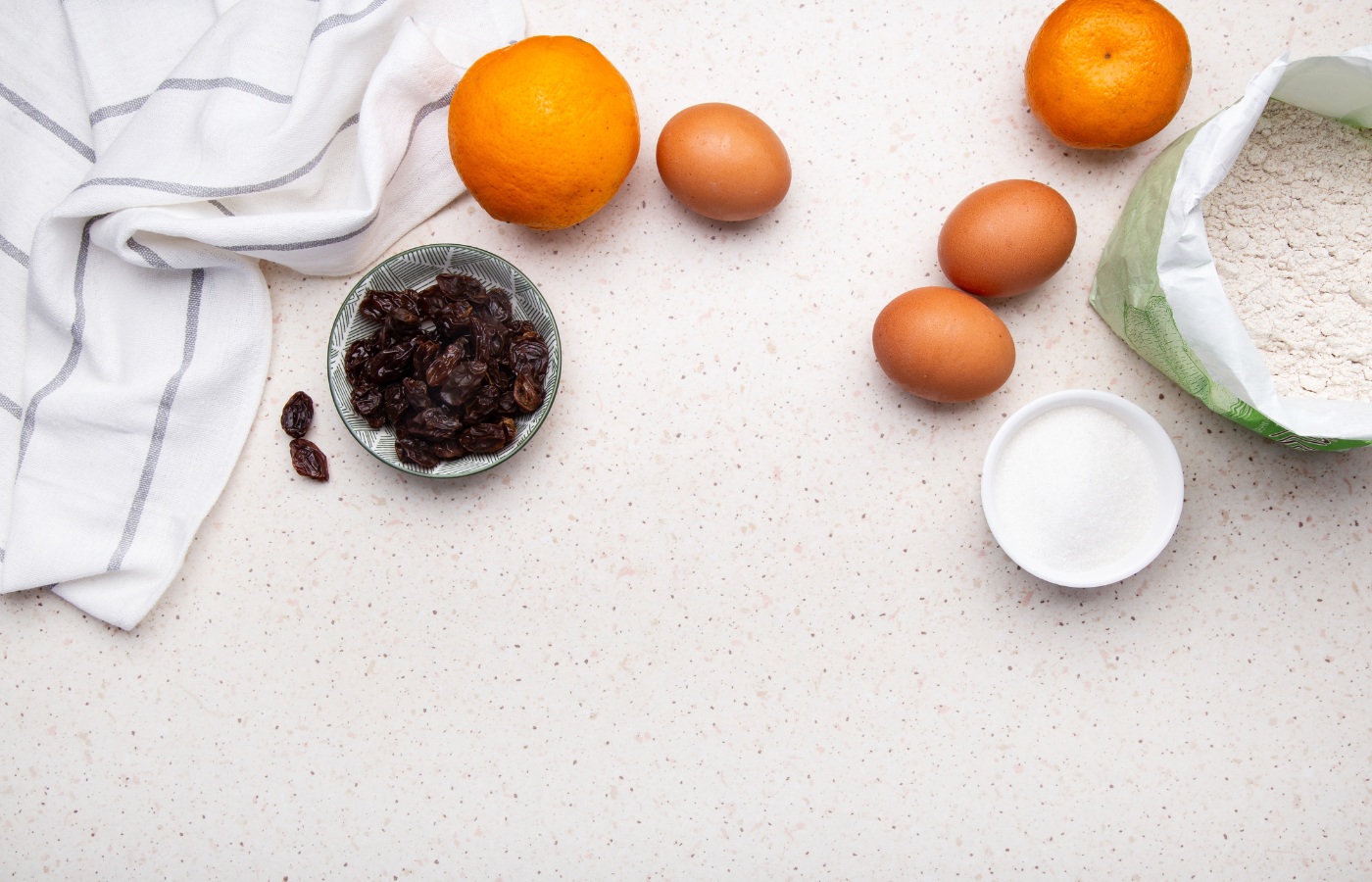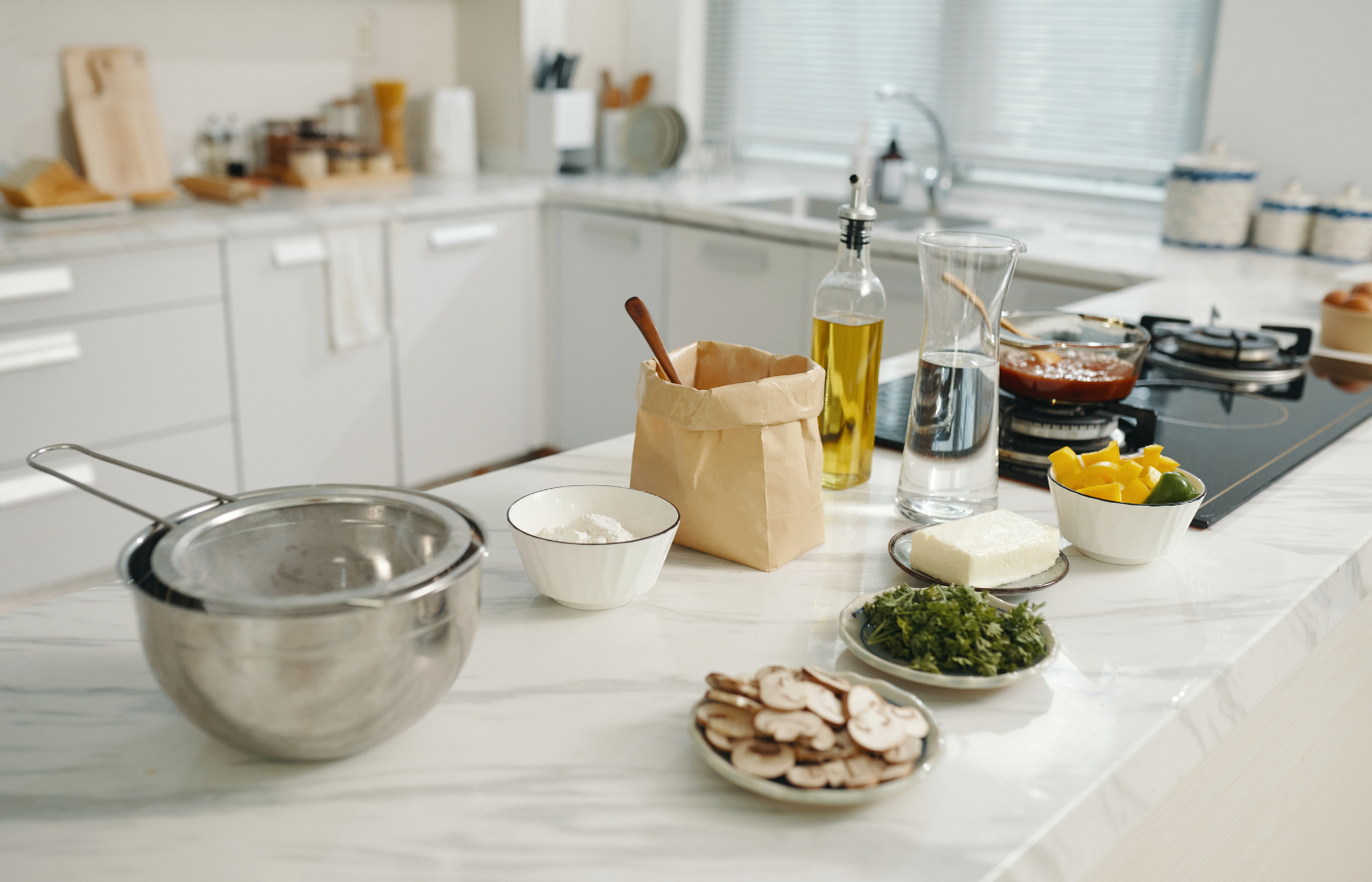
Hard water stains are one of the most common challenges homeowners face, especially in kitchens and bathrooms where water collects around faucets, sinks, and fixtures. These cloudy white or chalky marks form when mineral-rich water evaporates and leaves calcium and magnesium deposits on the surface. Over time, this buildup can dull the shine of polished stone, highlight etching, and make even high-end countertops appear aged. At Design Surfaces in Westlake, serving homeowners, designers, and contractors across Cleveland, we help you choose and maintain premium surfaces with confidence. This guide explains how to safely remove hard water stains, what to avoid, and how to protect stone countertops long term.
Hard water deposits create noticeable, often frustrating marks on both natural and engineered stone. Signs include:
These stains are especially visible on dark granite, polished marble, glossy quartz, and smooth quartzite, although they can affect any surface if water sits for long periods.

Not all countertop materials respond the same way to cleaning. The techniques below are recommended for granite, quartz, quartzite, and marble and are fully aligned with what we recommend at Design Surfaces.
A simple routine used consistently prevents the majority of buildup.
Best for: Light residue and day-to-day maintenance.
This gentle abrasive is safe for granite and quartzite.
Best for: Rings around faucets or soap pumps.
Sealed granite, quartz, and quartzite respond well to alcohol-based cleaners.
Best for: Areas that need deeper cleaning without aggressive chemicals.
For stains that have absorbed into the stone, a poultice is the most effective option.
Different stones require different formulas, so visiting Design Surfaces for product recommendations is the best way to ensure a safe, successful application.
Certain cleaners cause permanent damage and should be avoided entirely:
These products can strip sealers, dull polished finishes, weaken protective layers, and etch marble or dolomite within seconds.
Hard water minerals naturally build up over time, but consistent habits prevent long-term damage.
Make these practices part of your routine:
A few seconds of daily care can maintain a pristine finish for decades.
Each stone material reacts differently to mineral deposits. Understanding this helps you treat stains correctly.
Durable and reliable, granite handles hard water well when sealed regularly. Film tends to sit on the surface rather than penetrate deeply.
Because quartz is nonporous, hard water stains typically remain superficial. Wiping the surface dry prevents marks and preserves its polished appearance.
Marble is the most sensitive stone. Hard water buildup can cause dull areas and highlight etching, making gentle cleaners and frequent sealing essential.
More durable than marble but still porous. Sealing helps prevent mineral absorption, and quick cleanup keeps the surface bright.
Porcelain is nearly impervious to staining and offers the lowest maintenance option. Hard water wipes off easily with soap and water.
If you are unsure which stone you have, the Design Surfaces team can help you identify the material and choose the right cleaning approach.
Some stains or damage require expert help, especially if the surface has absorbed minerals or has been exposed to harsh cleaners.
Professional restoration is recommended for:
Design Surfaces works with trusted stone restoration partners who can evaluate and revive your countertops safely.
Hard water stains are common, but with safe cleaning methods and consistent maintenance, your stone countertops can remain brilliant and smooth long term. Whether your home features polished granite, soft marble, durable quartzite, or modern quartz, the right care routine protects both beauty and performance. Visit the Design Surfaces showroom in Westlake to compare full slabs, explore maintenance products, and get personalized guidance tailored to your stone type. Serving homeowners, designers, and contractors across Cleveland, we are here to help you protect and elevate every surface in your home.
Call: 440.899.9900 • Contact: Submit a Request • Email: info@designsurfaces.com